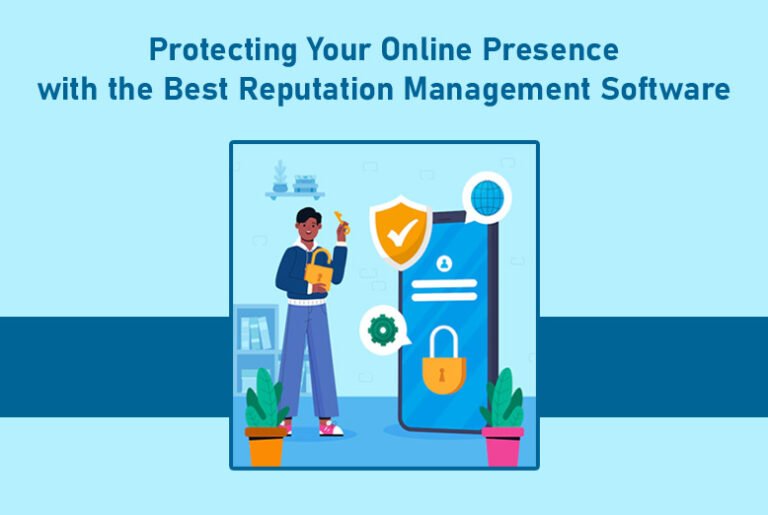In today’s era, it is essential for both individuals and businesses to maintain an online image. The internet holds power as even a single negative review or harmful comment can significantly damage one’s reputation. This is where reputation management tools prove invaluable.
These advanced software solutions allow you to effectively monitor, analyze, and address feedback. In this guest article, we will delve into the significance of safeguarding your reputation and explore how the best reputation management software can assist in upholding a public image.
Why Does Reputation Management Matter?
In a time when anyone with internet connectivity can share their thoughts, protecting your online standing is more crucial than before. Negative remarks or unfavorable reviews have the potential to sway how others perceive you or your business. Research indicates that consumers heavily rely on feedback when making purchasing decisions. A single adverse review could deter clients from selecting your goods or services.
Moreover, search engines give precedence to content based on its relevance and credibility. Negative reviews dominating the search outcomes associated with your name or business may overshadow content, thus hindering the visibility of your accomplishments and expertise.
The Significance of Reputation Management Solutions:
Reputation management software serves as an encompassing tool for preserving your presence. These advanced tools assist individuals and businesses in keeping track of mentions across platforms such as social media networks, review websites, forums, blogs, and news articles. Effective reputation management involves not only monitoring but also analyzing data to gain insights into consumer sentiment and trends associated with your brand or name.
Key Features of Top Reputation Management Software:
1. Monitoring:
Leading reputation management software offers real-time monitoring across channels. It searches the internet for any mention of your name or brand so you can stay informed about what people are saying about you all the time. This includes monitoring customer reviews, social media posts, forum discussions, and blog comments—everything that can influence your reputation.
2. Sentiment Analysis:
One significant feature provided by reputation management software is sentiment analysis. It assesses the tone and context of mentions related to your brand, helping you determine whether the sentiment is positive, negative, or neutral. This analysis enables you to make decisions based on data and take steps to address any issues or negative feedback effectively.
3. Review Management:
The finest reputation management software allows you to handle customer reviews on platforms proactively. This feature allows you to keep an eye on reviews as they arrive and respond promptly. Engaging with customers in a manner helps establish trust and shows your dedication to their satisfaction.
4. Social Media Monitoring:
Reputation management tools include features for monitoring media, allowing you to track mentions across platforms like Facebook, Twitter, Instagram, LinkedIn, and others. Monitoring social media conversations helps you spot issues early and respond quickly.
5. Analyzing Competitors:
To stay ahead of the game, top reputation management tools offer capabilities for analyzing competitors. By monitoring your competitors’ online reputation metrics, such as customer feedback and review ratings, you can spot industry trends and learn from their successes or mistakes.
6. Generating Reports:
Having reporting features is essential for reputation management. The best tools provide reports on metrics like sentiment analysis, review of distribution trends over time, competitor comparisons, and more. These reports offer insights into the impact of your efforts over time while enabling improvements.
The Advantages of Reputation Management Tools:
Reputation management software benefits individuals and businesses seeking to safeguard their presence and reputation. In this part, we will delve into the benefits of using these tools and how they can enhance your reputation positively.
Selecting the Suitable Reputation Management Software:
Not every reputation management software is made the same. When choosing the tool for your requirements, it’s crucial to take these aspects into account. This segment will address factors such as cost, features, user interface, customer service, and integration capabilities that should influence your decision-making process.
Effective Approaches to Reputation Management:
Apart from making use of reputation management software, having a thought-out strategy is vital for upholding an online presence. This section will present advice on managing your online reputation beyond solely relying on software tools. It will touch upon areas like monitoring, prompt and transparent interaction with customers, feedback solicitation, leveraging content marketing and SEO strategies, nurturing solid customer connections, and handling negative feedback constructively.
In Summary:
Maintaining a presence is of great importance in today’s digital era, where information spreads quickly. By utilizing top-notch reputation management software, you can be proactive in averting reputation hazards while actively tending to your image. Remember: prevention is always preferable to damage control! By tracking references using tools that utilize sentiment analysis and functions such as managing reviews and monitoring social media, you are actively safeguarding your reputation.
Also Read: rowAMPS solution eases Project Planning and Management Software



